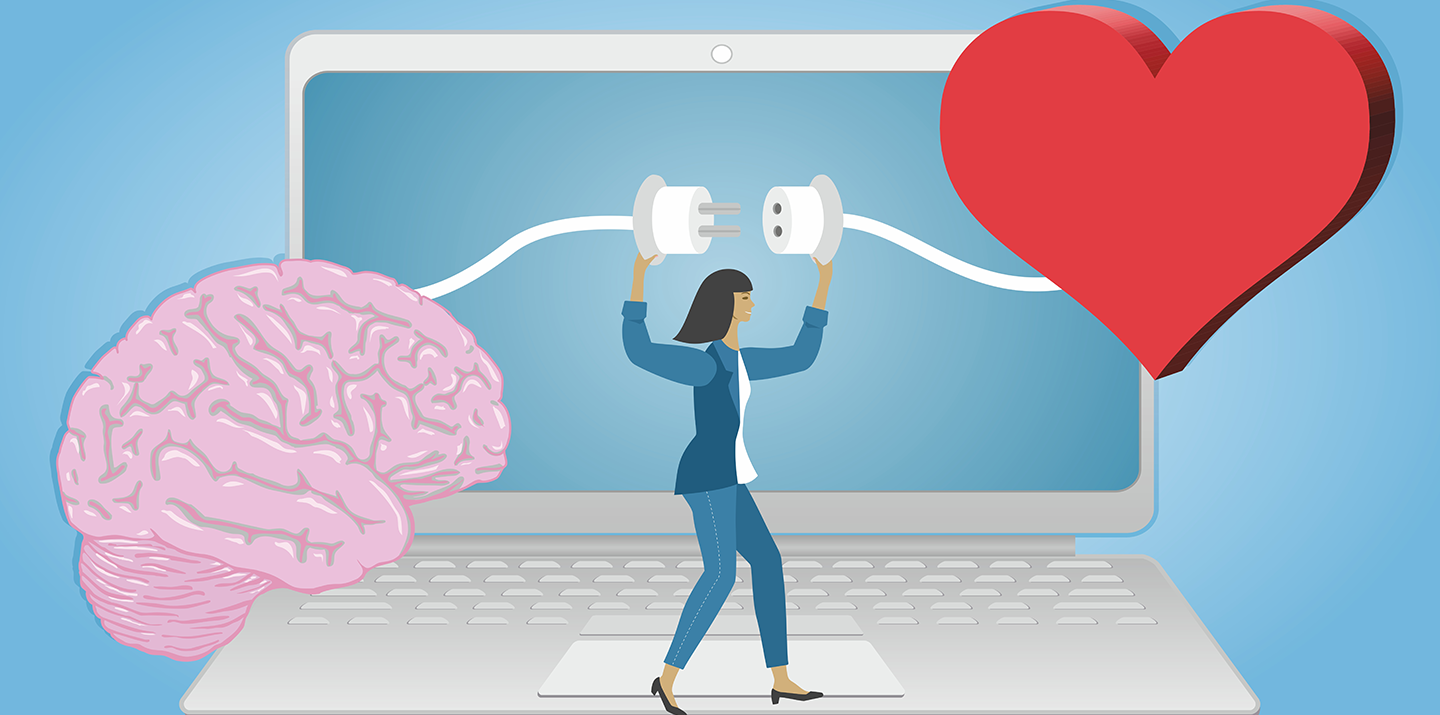On average, we spend over six hours a day online, with much of that time devoted to social media, streaming, and other digital platforms. This constant engagement has contributed to rising concerns about digital addiction, as these technologies are designed to capture and commodify our attention.
Algorithms and interfaces are specifically engineered to keep users scrolling, leading to potential risks for mental health, including anxiety, depression, and disrupted sleep.
The Wellbeing Week in February 2025 launched an interactive seminar, presented by Prof. Souhail Belhadj-Klaz, Visiting Professor. It will be again part of the 2026 programme of the Wellbeing Week end of February 2026.
Together, we will explore these risks and offer practice strategies to mitigate the negative effects of digital technology — from mindful usage to setting healthy boundaries — and discover how to foster a more balanced and positive digital experience for mental well-being.
Find out more in the podcast below.
AUTO-PILOT TO INTENTION
Attention without intention is wasted energy. Intention should always precede attention; this will help us switch off from auto-pilot mode and set goals and priorities for the day. Everyday, choose what to focus on.
TAKE BACK CONTROL
Digital distraction hijacks our reward system. Social media, streaming platforms, and video games are specifically designed to hijack our brain's reward system, by quickly releasing dopamine and then leaving us wanting more, thereby creating addiction. The companies behind these digital distractions have a financial interest in keeping us hooked to their products
DIGITAL OVERLOAD
Our ability to focus is an extraordinary but limited resource every day that runs out faster in the digital era. Thus, we need to preserve and make the best use of it. “Attention is like energy in that without it, no work can be done, and in doing so, it is dissipated" (Mihaly Csikszentmihalyi)
INTERNET ADDICTION DISORDER
Digital overload may be the defining problem of today’s workplace and life. “Addiction begins with intermittent to recreational use, then progresses into daily use, and then progresses into consequential use, which in some cases will progress to life-threatening use,” Dr. Lembke (Author of Dopamine Nation)
PODCAST
ARTICLES
(autres articles à venir)




